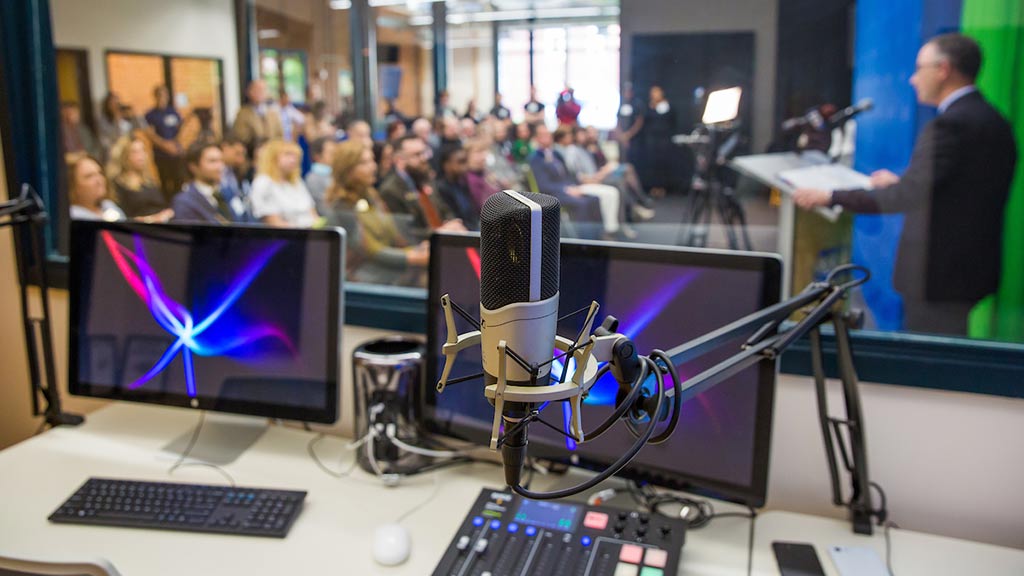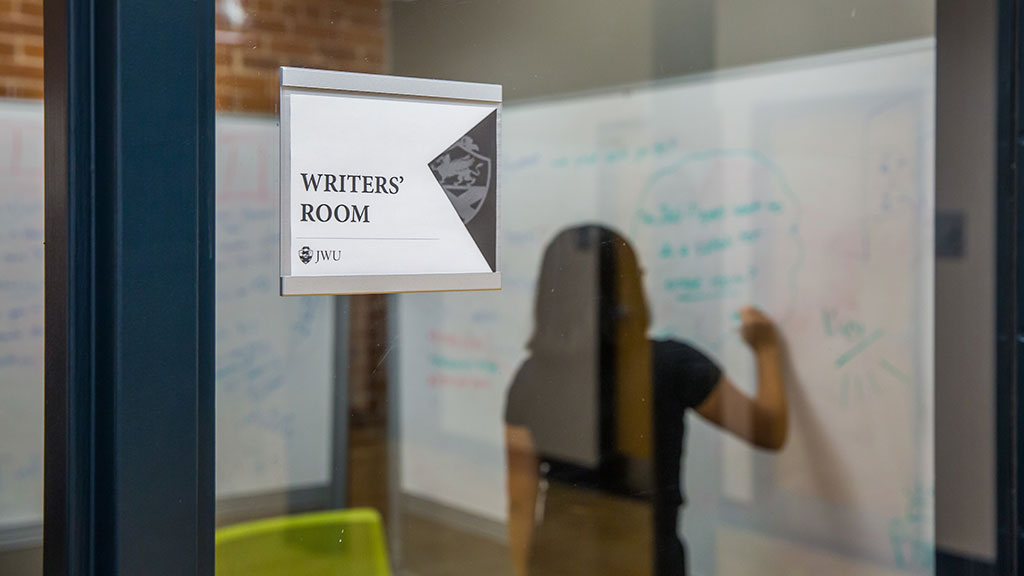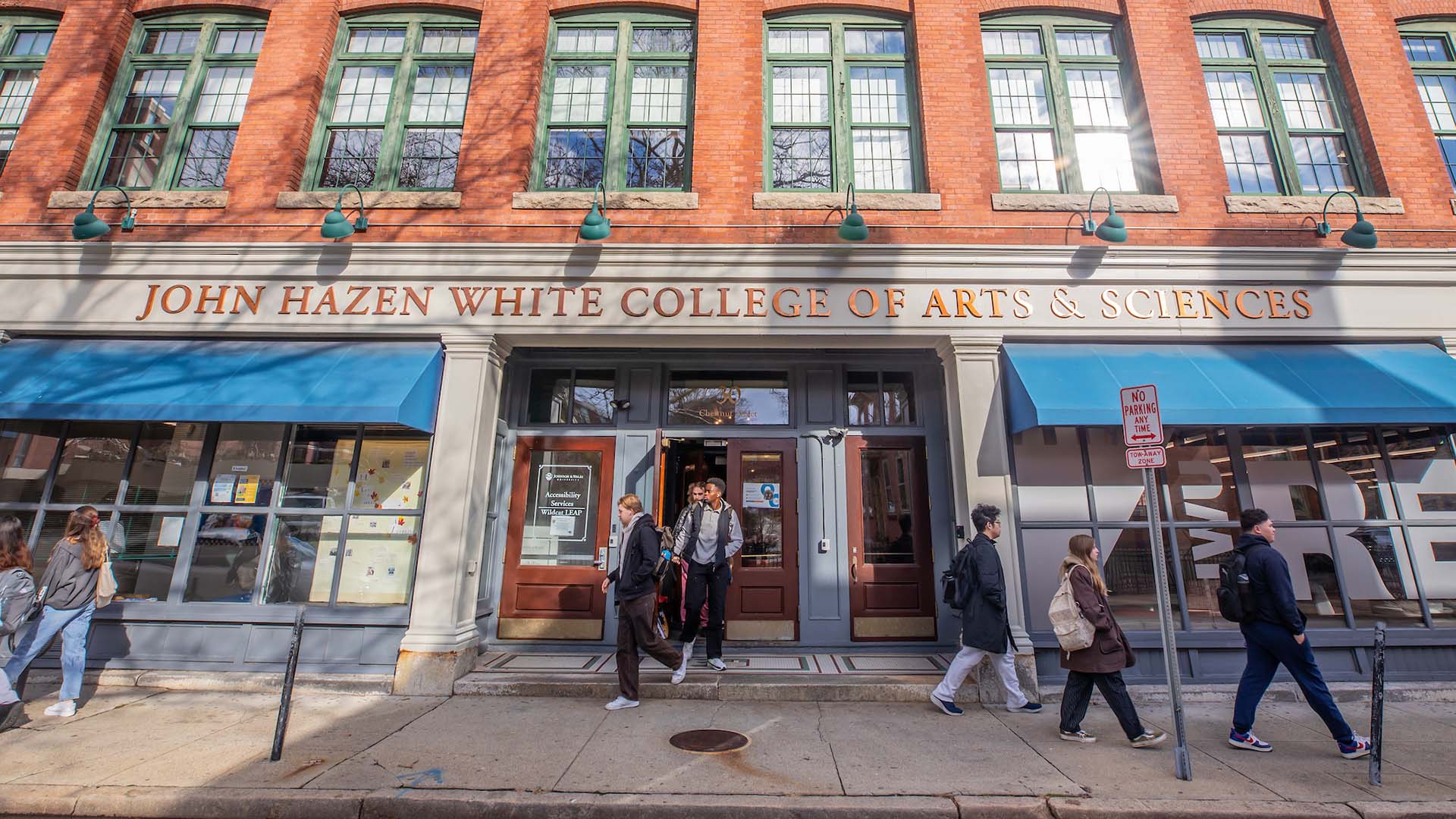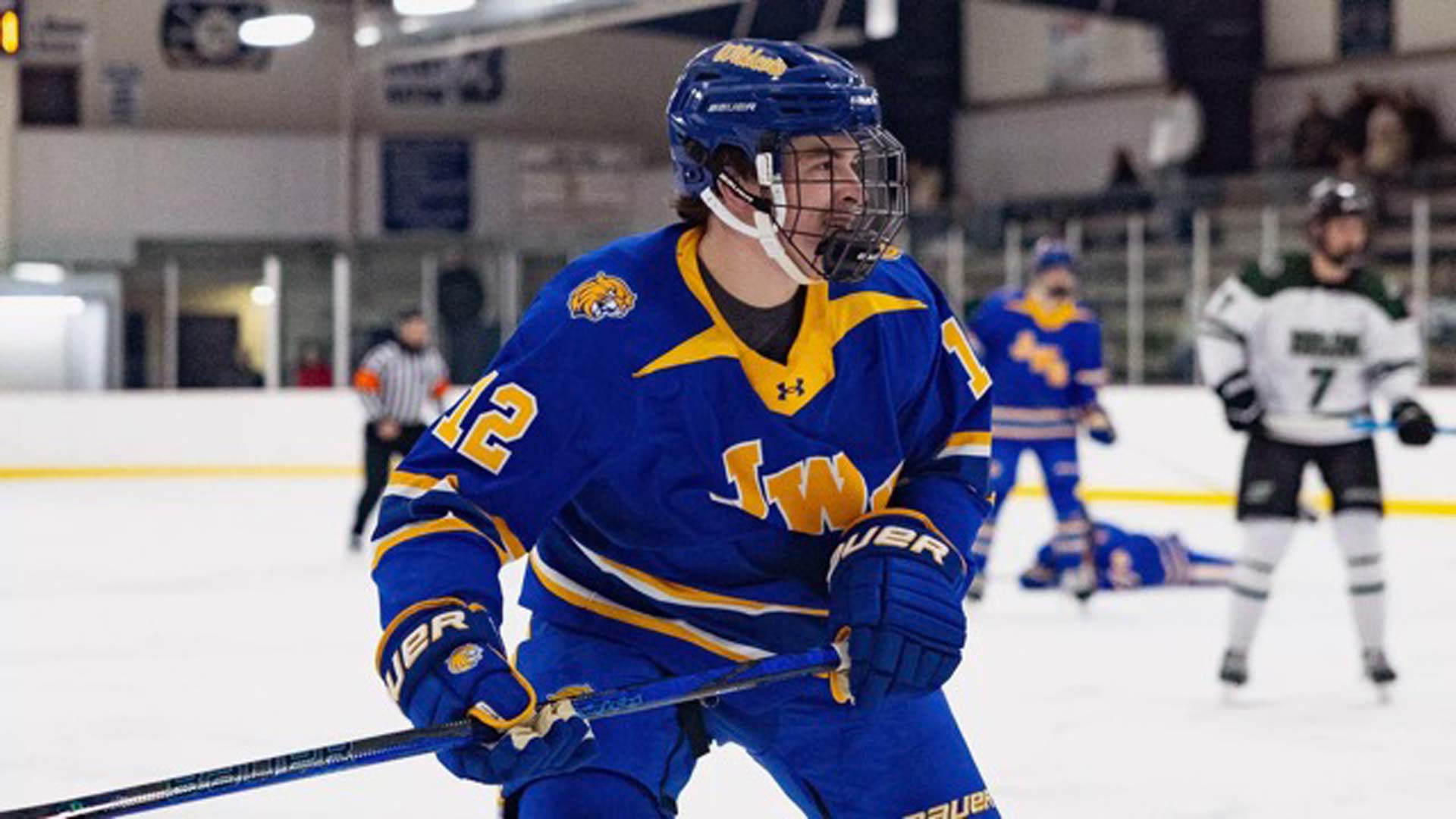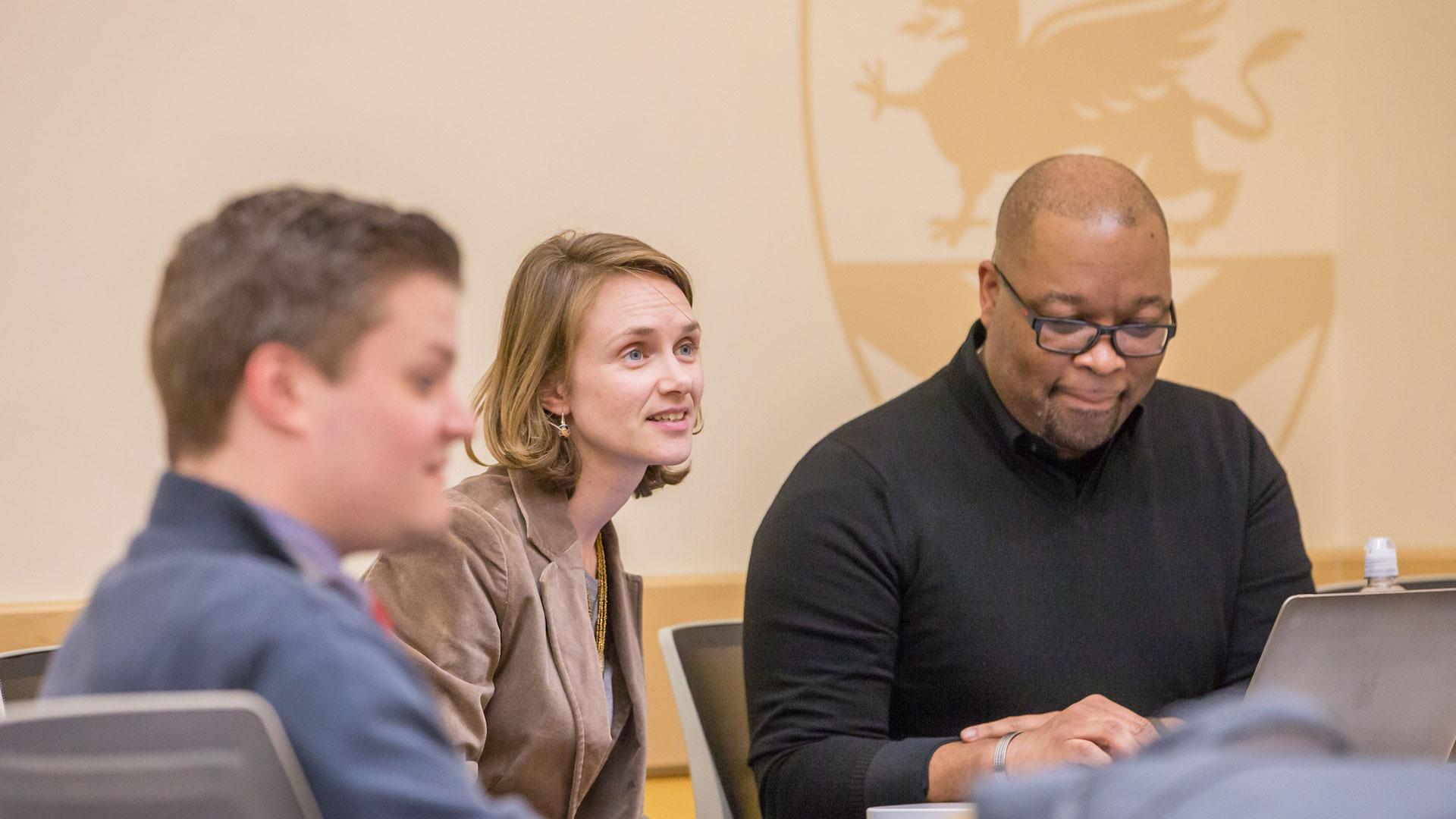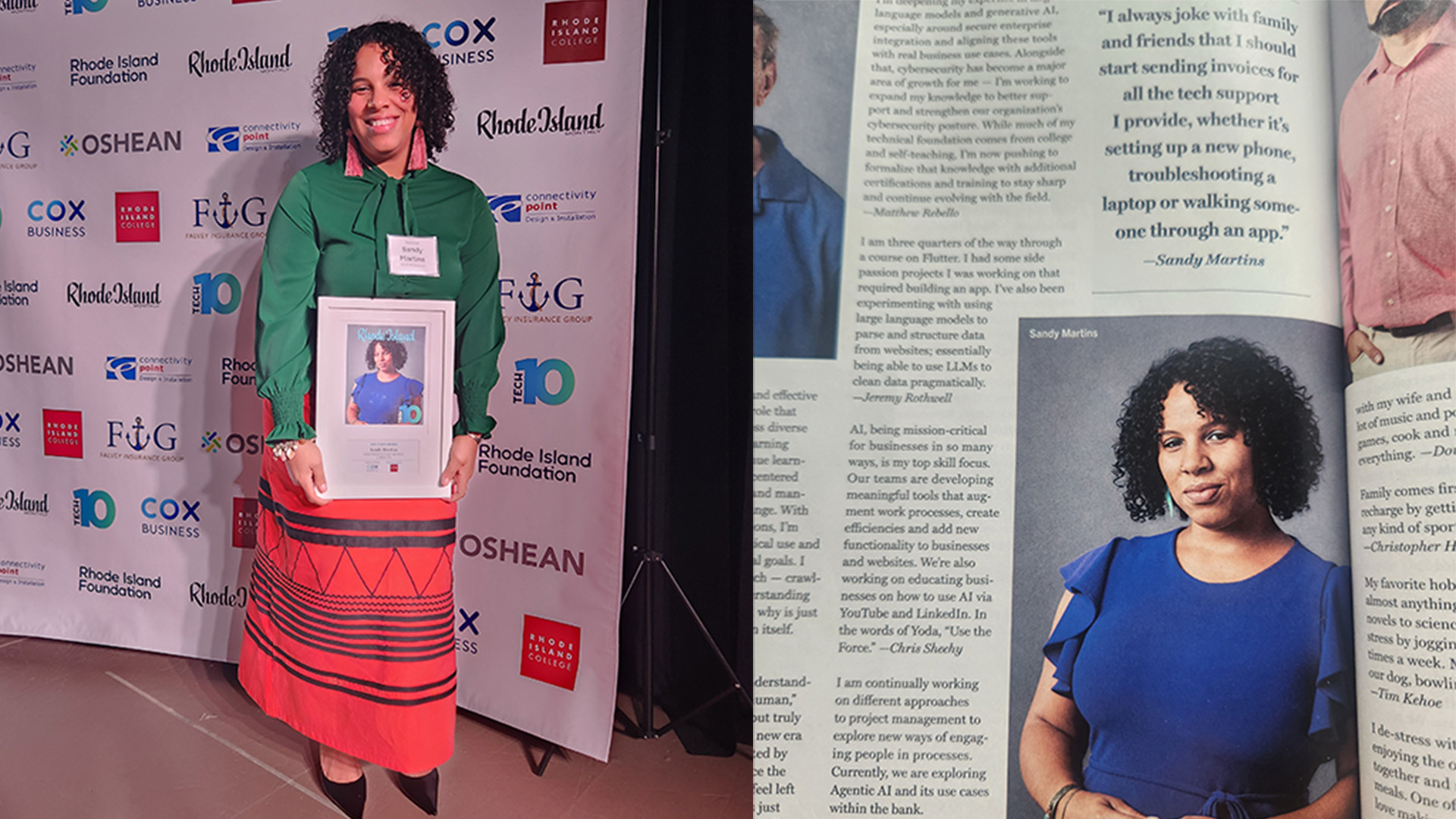Three Reasons Why You Should Be a Media & Communication Major
Since the program was launched in 2013, Media & Communication has quickly grown in strength and numbers. Now, with over 100 students and a brand-new Center for Media Production — among other things — it’s no wonder the program has become a popular choice for incoming students. Here are three reasons why Media & Communication should be on your radar.
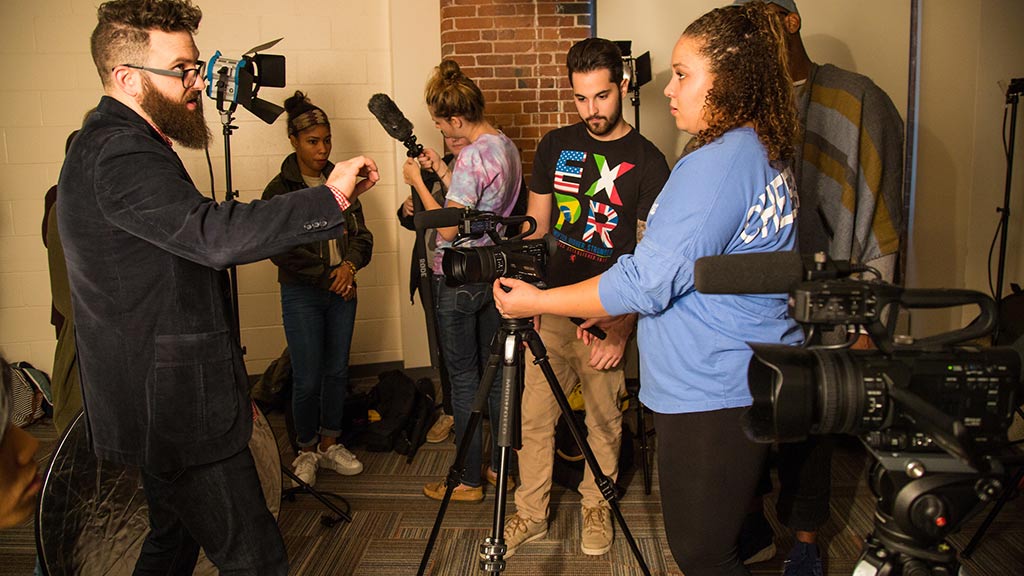
1. The program offers customizable elective tracks and plenty of career options.
These two things are combined into one reason because we all know that a customizable degree can prepare you for any career you’d like to pursue. “We prepare students to really think about how to create as well as edit, translate, and disseminate information across a variety of industries and platforms,” said Professor Chris Westgate, Ph.D. “[Students build] those creative and critical thinking skills as well as the written and oral communication skills that will prepare them to succeed in any position that they set their sights on for the future.”
You would run out of breath trying to list all the potential career paths you could take with this degree, both in and outside of media industries. But, you can view a full list of the electives offered to start thinking about what you want to do within this program.
2. Experience, passion, dedication – faculty members bring it all.
You won’t find the faculty at the beach very often this summer. Chances are you’ll find associate professor Evan Villari in the Center for Media Production helping students or staff with a video project, or he may be out working on his upcoming documentary.
Professor Scott Oberacker will be busy judging films and helping out as a board member for Flicker’s Rhode Island International Film Festival. He helps students land internships with the prestigious festival and has organized screenings at JWU.
Meanwhile, Professor Westgate can be found creating video podcasts that discuss the program, sharing his expertise on issues related to the COVID pandemic, and writing op-eds for news outlets.
The point is: Media & Communication faculty continue to be active in their industries, help students network to land internships, and bring their experience into the classroom to make their lessons more relevant.
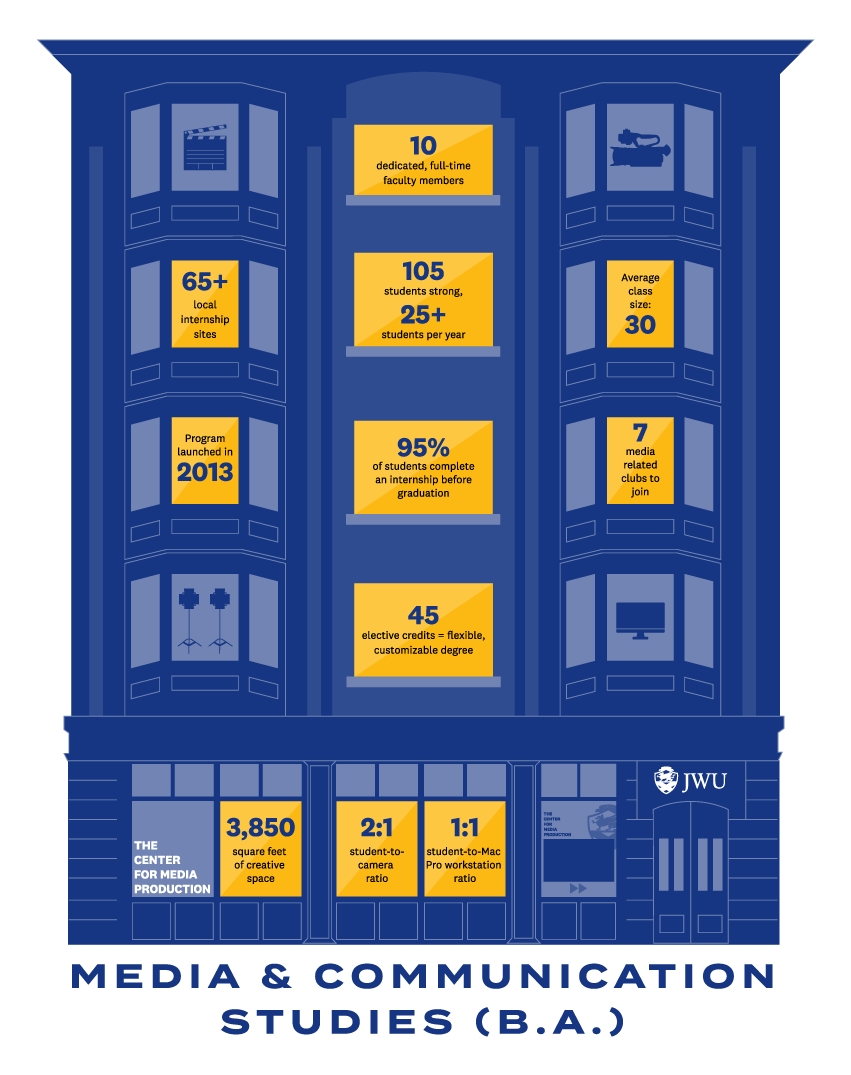
3. The resources and the numbers are impressive.
Honestly, the statistics speak for themselves – but, we should dive deeper into the Center for Media Production that was mentioned earlier. The Center boasts two light-controlled studio spaces with moveable green screens, a soundproofed podcast studio, two editing suites, a writer’s room, 24 powerful Mac Pro work stations, a 4k projector and projection screen, and plenty of high-end video and photo equipment. It’s a versatile space that students of every major can utilize.
“The most beneficial thing is all the different spaces the Center offers,” said Sydney Ferreras ’21. “When you’re in an actual studio you feel more professional and more idea-driven.”
Want to learn more about JWU?
EXPLORE FROM HOME 